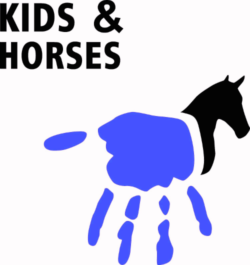Talking to a Child about Illness in a Horse
By: Jane Sandwood
They say that the one bad thing about horses is that they have a relatively short lifespan, and when children are involved, illness or loss of a beloved horse can be devastating. Of course, horse owners are relatively lucky; horses live around three times longer than dogs, yet even the healthiest of horses occasionally battle illnesses, some of the most common of which include sweet itch, ringworm, or the common cold. What to say to a child who has built a special bond with a horse, and who wonders why their horse needs a rest, or why he has symptoms that require special treatment – without causing distress?
Taking a Natural Approach to Illness or Injury
As noted by academics at the Ohio State University Veterinary Medical Center, “ Learning to accept illness is a natural experience in life. It is important that children have the opportunity to participate in family discussions of these issues.” Thus, illness can teach children plenty about making decisions, being responsible, and being consistent with taking care of an ill pet. Thus, parents can discuss different treatments, including children who are old enough to provide valuable input.
Our Calm is Their Calm
Illness can also show children that sometimes, symptoms can be alarming, without being life-threatening. Thus, children who are around race horses or other highly athletic horses may initially be very upset at specific symptoms such as a nosebleed. Rather than panic and removing children from the scene, however, it is important for parents to remain calm, take the horse aside and treat him. Children who aren’t squeamish can help with administering the medicine or even say calming words to the horse while parents are treating it. Children will mirror our emotions and intensity, and even in critical situations, the best thing we can do is to foster an atmosphere of calm.
Informing Children about Common Illnesses in Horses
From the time a horse is young, children should be told about typical health problems their pet can face. Some of the most common include colic (this may require surgery though can manifest itself through a simple stomach ache); arthritis (in which cartilage wears down, thus reducing the ability to move); desmitis (in which ligaments can become inflamed); gastric ulcers (mainly caused by stress and resulting in pain and a reduced appetite); and laminitis (in which soft tissue in the hoof area known as the laminae, becomes inflamed). Kids can be taught to watch out for signs of pain in their horse (including poor appetite, slowness in movement, or limpness), so they can inform you if they observe any signs that have slipped under your radar. By talking about issues such as gastric ulcers, children can learn the important connection between a horse’s mental and physical wellbeing. Thus, kind treatment, regular grooming and giving a horse enough regular exercise are key if we wish to avoid stress-related conditions.
Allowing a Child to Express Sadness
If a horse has a serious or long-term illness, children can react in ways we might not expect; they may have an outburst or laughter, or become angry or boisterous. It is vital to understand that children deal with stress differently than adults do. It is important to be open so that they know they can ask questions, and that we will answer with honesty. You don’t have to give very long explanations if a child is not capable of understanding. Simply let them know that their horse is sick and needs medicine or rest, or (in the case of impending death) that the horse has tried his hardest to battle an illness but may not come through it.
When speaking to a child about illness in a horse they love or are close to, honesty and simplicity are qualities that tend to work well. It is okay to let children know you don’t have all the answers, while giving them as much information as they ask of you. Allow children to help you take care of an ill horse, so they understand the true nature of unconditional friendship. If your horse is very ill, make sure your child knows you are doing all you can to make your horse better. Allow them to cry or show their frustration; a horse can mean everything to a child and seeing them in pain or discomfort may be every bit as hard for them as it is for you.
